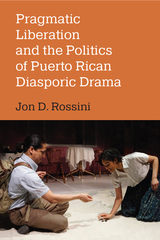8 start with F start with F

Fabulous verse.
Babrius is the reputed author of a collection (discovered in the 19th century) of more than 125 fables based on those called Aesop’s, in Greek verse. He may have been a Hellenized Roman living in Asia Minor during the late first century of our era. The fables are all in one metre and in very good style, humorous and pointed. Some are original.
Phaedrus, born in Macedonia, flourished in the early half of the first century of our era. Apparently a slave set free by the emperor Augustus, he lived in Italy and began to write Aesopian fables. When he offended Sejanus, a powerful official of the emperor Tiberius, he was punished but not silenced. The fables, in five books, are in lively terse and simple Latin verse not lacking in dignity. They not only amuse and teach but also satirize social and political life in Rome.
This edition includes a comprehensive analytical Survey of Greek and Latin fables in the Aesopic tradition, as well as a historical introduction.
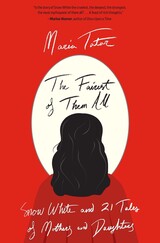
“With her trademark brio and deep-tissue understanding, Maria Tatar opens the glass casket on this undying story, which retains its power to charm twenty-one times, and counting.”
—Gregory Maguire, author of Wicked
The story of the rivalry between a beautiful, innocent girl and her cruel and jealous mother has been endlessly repeated and refashioned all over the world. The Brothers Grimm gave this story the name by which we know it best, and in 1937 Walt Disney sweetened their somber version to make the first feature-length, animated fairy tale, Snow White and the Seven Dwarfs. Since then, the Disney film has become our cultural touchstone—the innocent heroine, her evil stepmother, the envy that divides them, and a romantic rescue from domestic drudgery and maternal persecution. But each culture has its own way of telling this story of jealousy and competition. An acclaimed folklorist, Maria Tatar brings to life a global melodrama of mother-daughter rivalries that play out in unforgettable variations across countries and cultures.
“Fascinating…A strange, beguiling history of stories about beauty, jealousy, and maternal persecution.”
—Wall Street Journal
“Is the story of Snow White the cruelest, the deepest, the strangest, the most mythopoeic of them all?…Tatar trains a keen eye on the appeal of the bitter conflict between women at the heart of the tale…a feast of rich thoughts…An exciting and authoritative anthology from the wisest good fairy in the world of the fairy tale.”
—Marina Warner
“The inimitable Maria Tatar offers us a maze of mothers and daughters and within that glorious tangle an archetype with far more meaning than we imagine when we say ‘Snow White.’”
—Honor Moore
“Shocking yet familiar, these stories…retain the secret whisper of storytelling. This is a properly magical, erudite book.”
—Literary Review
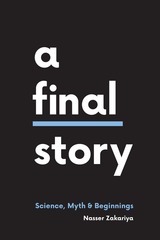
In A Final Story, Nasser Zakariya delves into the origins and ambitions of these scientific epics, from the nineteenth century to the present, to see what they reveal about the relationship between storytelling, integrated scientific knowledge, and historical method. While seeking to transcend the perspectives of their own eras, the authors of the epics and the debates surrounding them are embedded in political and social struggles of their own times, struggles to which the epics in turn respond. In attempts to narrate an approach to a final, true account, these synthesizing efforts shape and orient scientific developments old and new. By looking closely at the composition of science epics and the related genres developed along with them, we are able to view the historical narrative of science as a form of knowledge itself, one that discloses much about the development of our understanding of and relationship to science over time.
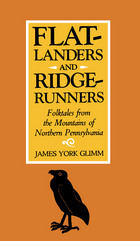
Excerpt from Flatlanders and Ridgerunners:
Out-Riddling the Judge
Back in Prohibition my uncle made moonshine. His name was Moses Kenny and his whiskey--they called it “White Mule” was the best in the county. Well, the feds got after him and finally they arrested him. Took him to a federal judge down in Philadelphia.
Now, the judge liked a good time and thought he’d have a little fun with this hick from the mountains. When Uncle came into court, he said, “are you the Moses who can make the sun dark?”
Moses looked at him and said slowly, “Nope, your honor. But I am the Moses who can make the moon shine.”
The judge let him go.
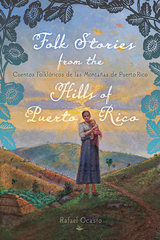
Some stories provide a distinctive Caribbean twist on classic tales including “Snow White” and “Cinderella.” Others fictionalize the lives of local historical figures, such as infamous pirate Roberto Cofresí, rendered here as a Robin Hood figure who subverts the colonial social order. The collection also introduces such beloved local characters as Cucarachita Martina, the kind cockroach who falls in love with Ratoncito Pérez, her devoted mouse husband who brings her delicious food.
Including a fresh English translation of each folktale as well as the original Spanish version, the collection also contains an introduction from literary historian Rafael Ocasio that highlights the historical importance of these tales and the Jíbaro cultural values they impart. These vibrant, funny, and poignant stories will give readers unique insights into Puerto Rico’s rich cultural heritage.
Esta nueva y emocionante antología reúne cuentos populares puertorriqueños que fueron transmitidos oralmente durante generaciones antes de ser finalmente transcritos comenzando en 1914 por el equipo del famoso antropólogo Franz Boas. Estos encantadores cuentos ofrecen a los lectores un vistazo a la imaginación y las aspiraciones de los jíbaros, los campesinos de Puerto Rico.
Algunas historias brindan un distintivo toque caribeño a cuentos clásicos como "Blanca Nieves" y "Cenicienta". Otros ficcionalizan la vida de personajes históricos locales, como el famoso pirata Roberto Cofresí, representado como una figura al estilo de Robin Hood, quien subvierte el orden social colonial. La colección también presenta personajes locales tan queridos como Cucarachita Martina, la amable cucaracha que se enamora de Ratoncito Pérez, su devoto esposo ratón que le trae deliciosa comida.
Incluyendo una nueva traducción al inglés de estos cuentos populares, así como las versiones originales en español, la colección también contiene una introducción del historiador literario Rafael Ocasio, quien destaca la importancia histórica de estos cuentos y los valores culturales del jíbaro que éstos imparten en los relatos. Estas historias vibrantes, divertidas y conmovedoras brindarán a los lectores una visión única de la rica herencia cultural de Puerto Rico.
Introducción en español (https://d3tto5i5w9ogdd.cloudfront.net/wp-content/uploads/2021/02/03154419/Ocasio_Cuentos_Intro_Espan%CC%83ol.pdf)
Rafael Ocasio will discussing his book, 'Folk Stories from the Hills of Puerto Rico / Cuentos folklóricos de las montañas de Puerto Rico' at Biblioteca Juvenil de Mayagüez in Puerto Rico (https://youtu.be/o6Tub094EoI)
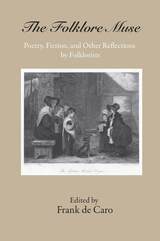
Folklore—the inherently creative expression, transmission, and performance of cultural traditions—has always provided a deep well of material for writers, musicians, and artists of all sorts. Folklorists usually employ descriptive and analytical prose, but they, like scholars in other social sciences, have increasingly sought new, creative and reflexive modes of discourse. Many folklorists are also creative writers, some well known as such, and the folk traditions they research often provide shape and substance to their work. This collection of creative writing grounded in folklore and its study brings together some of the best examples of such writing.
Contributors to this collection include Teresa Bergen, John Burrison, Norma E. Cantu, Frank de Caro, Holly Everett, Danusha Goska, Neil R. Grobman, Carrie Hertz, Edward Hirsch, Laurel Horton, Rosan Augusta Jordan, Paul Jordan-Smith, Elaine J. Lawless, Cynthia Levee, Jens Lund, Mary Magoulick, Bernard McCarthy, Joanne B. Mulcahy, Kirin Narayan, Ted Olson, Daniel Peretti, Leslie Prosterman, Jo Radner, Susan Stewart, Jeannie Banks Thomas, Jeff Todd Titon, Libby Tucker, Margaret Yocom, and Steve Zeitlin.

"This collection does an excellent job of representing India. . . . It is the type of book that can be enjoyed by all readers who love a well-told tale as well as by scholars of traditional narrative and scholars of India in general."—Hugh M. Flick, Jr., Asian Folklore Studies
"The stories collected here are representative, rich in structural subtlety, and endowed with fresh earthy humor."—Kunal Chakraborti, Contributions to Indian Sociology
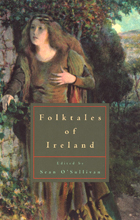
"Without doubt the finest group of Irish tales that has yet been published in English."—The Guardian
"O'Sullivan writes out of an intimacy with his subject and an instinctive grasp of the language of the originals. He tells us that his archives contain more than a million and a half pages of manuscript. If Mr. O'Sullivan translates them, I'll read them."—Seamus Heaney, New Statesman
"The stories have an authentic folktale flavor and will satisfy both the student of folklore and the general reader."—Booklist
READERS
Browse our collection.
PUBLISHERS
See BiblioVault's publisher services.
STUDENT SERVICES
Files for college accessibility offices.
UChicago Accessibility Resources
home | accessibility | search | about | contact us
BiblioVault ® 2001 - 2024
The University of Chicago Press




